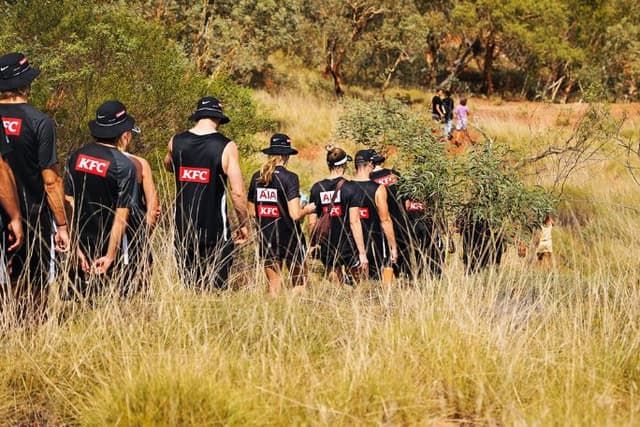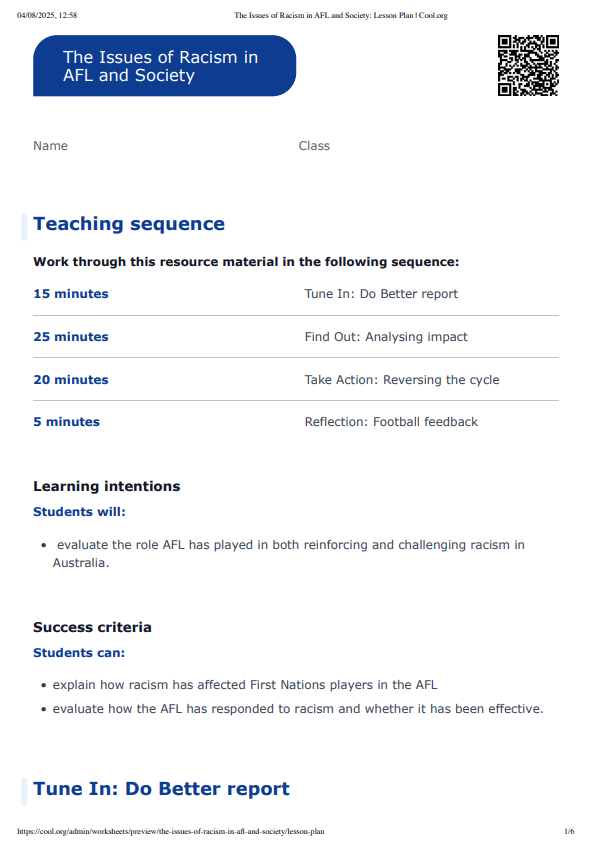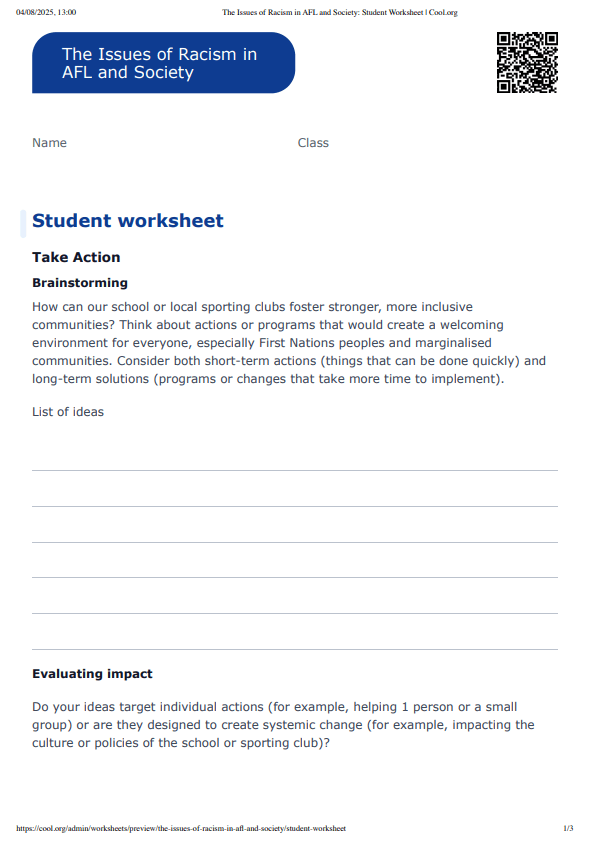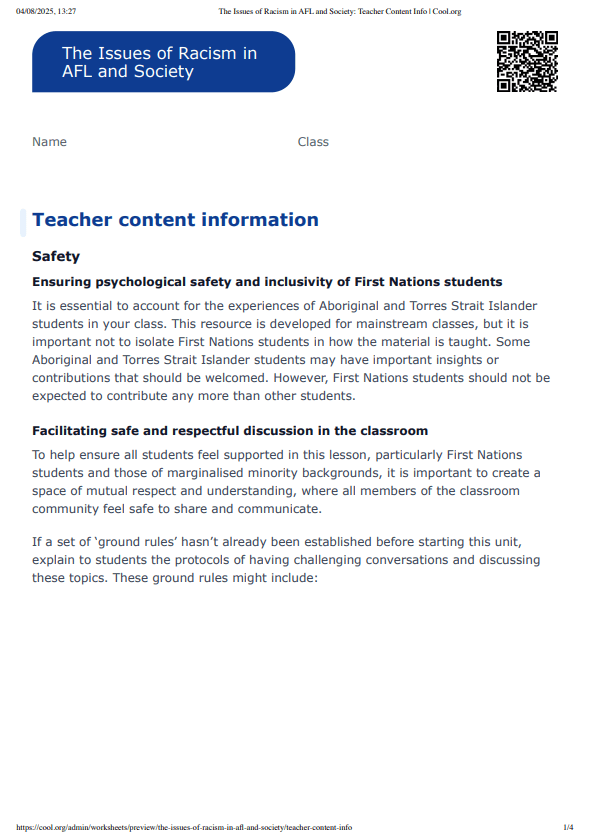Learning intentions
Students will:
- evaluate the role AFL has played in both reinforcing and challenging racism in Australia.
Success criteria
Students can:
- explain how racism has affected First Nations players in AFL
- evaluate how the AFL has responded to racism and whether it has been effective.



